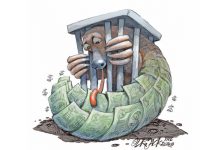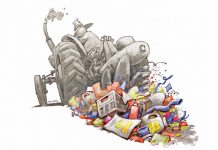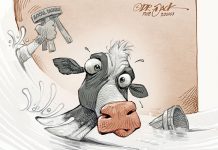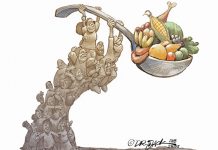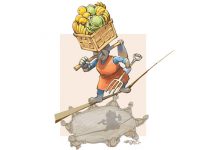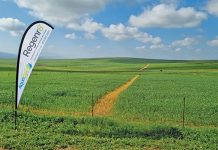Energy storage can enhance SA agriculture
Energy-related challenges pose a significant obstacle to the agriculture sector’s continued growth in South Africa, says Abraham Cambridge, founder and CEO of The Sun Exchange, which specialises in solar-energy projects.
Captive breeding and wildlife trafficking
According to a UN report, there is evidence that captive breeding is being used in some instances as a guise for the illegal trafficking of wildlife and their body parts.
Managing the risk of wildfires
A new report by the United Nations Environment Programme says wildfires will become an increasing reality for the world due to climate change and other factors. Thus, fire management and risk reduction are essential.
Climate change: why the world cannot afford a disorderly transition
A new report states that the lack of coordinated action on climate change poses profound dangers to society. Amongst these is an increase in already stark inequalities.
Alternatives to using plastics in agricultural production
While the use of plastics has helped farmers to produce more with less, the material presents an enormous environmental issue. This report by the Food and Agriculture Organization of the United Nations looks at alternatives that can be introduced by farmers and governments to reduce reliance on plastics in agricultural production and thereby cut down on pollution.
The scandal of food wastage: prepare for regulatory pressure
In South Africa, about 30% of local agricultural production is wasted every year, which is equivalent to an estimated R60 billion, or around 2% of GDP. In a country where 30% of households are at risk of hunger, 31% experience hunger and 13 million children live in poverty, this waste is unsustainable and needs to change, says James Brand, a senior associate in ENSafrica’s Natural Resources and Environment department.
Combating the effects of soil pollution
Soil pollution is a serious challenge worldwide, resulting in environmental damage and potential health hazards to people and animals. This report examines affordable ways in which farmers can limit its effects on their crops and reduce further soil degradation.
Why SA dairy farmers are failing to compete with imports
It is often argued that the ability of the local dairy industry to grow or even survive will depend on the extent to which it can compete with imported dairy products. But can South African dairy farmers succeed when the odds are so clearly stacked against them? Bertus van Heerden, chief economist of the Milk Producers’ Organisation, and Prof Johann Kirsten, director of the Bureau for Economic Research at Stellenbosch University, carried out a price analysis to get some answers.
How civil society can help SA’s fight against food insecurity
A new study on emergency food relief efforts during the COVID-19 pandemic, by researchers Camilla Adelle and Ashley Haywood, shows how civil society groups can help to restore South Africa’s ailing food system in the long term, and why government needs to aid the process by providing an enabling environment.
The huge risks posed by antimicrobial resistance
Access to effective antimicrobials and their appropriate use have a role in productive and sustainable agriculture. However, the misuse of these products has contributed to rising rates of antimicrobial resistance, impairing public health, food and agriculture production systems, and food security. The UN’s recent action plan serves as a road map for focusing global efforts to address antimicrobial resistance.
Inclusivity is crucial to SA’s livestock sector
Mooketsa Ramasodi, director general of the Department of Agriculture, Land Reform and Rural Development, argues that bringing South Africa’s informal livestock sector fully on board will not only improve the lives and future prospects of smallholder farmers, but also maximise profits for the industry as a whole.
Social protection for sustainable food systems
Social protection programmes to help farmers become more resilient aren’t just safety nets, but can help them make investments and meaningfully engage in markets, says the Alliance for a Green Revolution in Africa.


